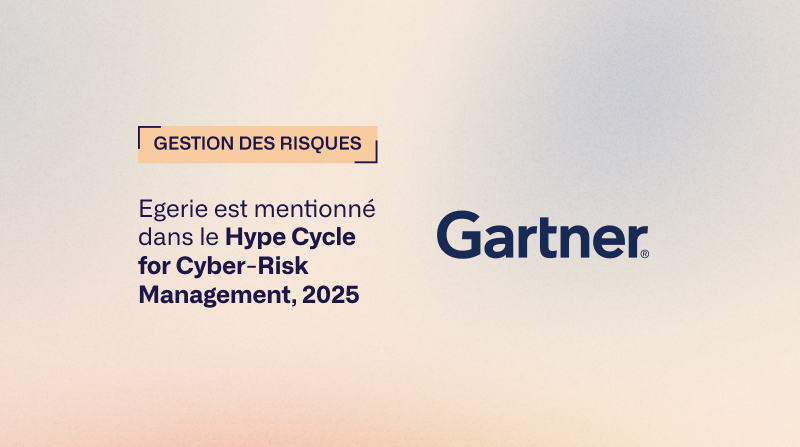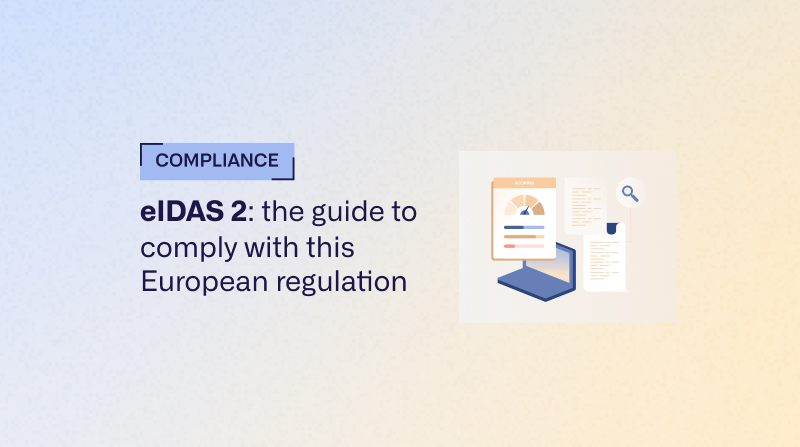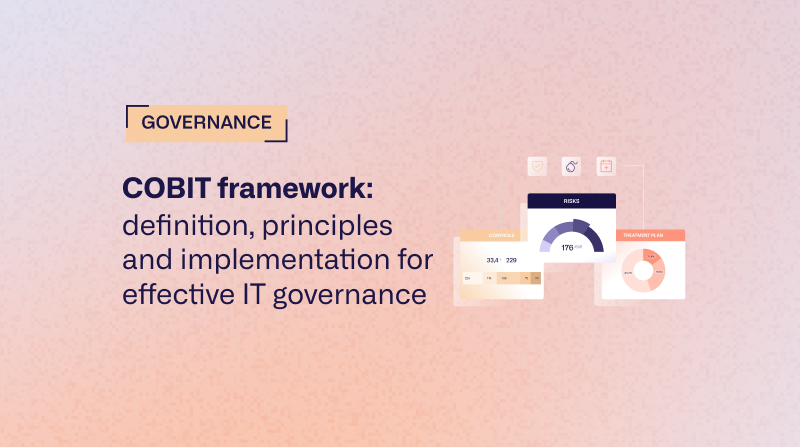CISO: a key role in corporate security and governance
In this article, discover the role of the CISO (Information System Security Manager), his missions within companies, the path to access them, the average salary, as well as the strategic challenges related to cyber risk management and regulatory compliance.
In a world where cyberattacks are multiplying and becoming more and more sophisticated, the role of Information Security Manager (CISO) takes on strategic importance.
Long perceived as a technical expert in the background, he is now a central player in the governance and management of digital risks. But in concrete terms, what does this position consist of, what career path allows access to it, what remuneration can we expect, and above all: what is its role in the transformation of companies in the face of regulatory requirements and cyber threats?
What is a CISO?
The CISO is the person responsible for defining, implementing and controlling the company's IT security policy. Its field of action covers the entire information system, from technical infrastructures to business applications, including raising employee awareness.
Initially perceived as a technical expert, he gradually evolved into a role of digital risk manager. Today, it is located at the interface between general management, business and technical teams. This transversal position allows it to provide a global vision of the organization's exposure to cyber threats.
Depending on the size of the company, the CISO can be attached to the Information Systems Department (DSI), to the General Manager or directly to the COMEX. This growing proximity to governance bodies illustrates well the transformation of the business: cybersecurity has become a performance, compliance and business continuity challenges, and no longer just a technological problem.
Main missions and responsibilities of the CISO
The CISO takes on one function at a time strategic and operational. Its role is not limited to deploying technical solutions: it is also a question of anticipating, convincing and coordinating.
On the map strategic, it contributes to defining the company's security vision:
- Develop and maintain security policy (PSSI), which sets out the framework and rules applicable to all employees.
- Translating regulatory obligations (RGPD, NIS 2, DORA, ISO 27001) into concrete and measurable action plans.
- Managing the cyber maturity level and provide COMEX with a clear reading of investment risks and priorities.
On the map operational, the CISO ensures the implementation and effectiveness of protection measures:
- Identify and analyze vulnerabilities of the information system.
- Supervise technical devices such as SIEM, EDR or even identity and access management solutions.
- Coordinating incident response and ensure business continuity in the event of a crisis.
- Raise awareness and train employees, so that safety becomes a shared responsibility.
This combination of strategic and operational actions clearly illustrates the complexity of the position: the CISO is both conductor, management advisor and digital defense pilot of the organization.
What is the path to become a CISO?
The majority of CISOs have initial training in computer science or cybersecurity: engineering schools, specialized masters or university courses. But the job is also open to profiles from risk management or compliance, provided they acquire solid technical bases.
Certifications are also a major asset for evolving:
- CISSP (Certified Information Systems Security Professional), very recognized internationally.
- CISM (Certified Information Security Manager), which insists on governance and management.
- ISO 27001 Lead Implementer or Lead Auditor, for organizations subject to compliance audits.
-
Expected key competencies
A good CISO must combine two dimensions:
- Technical skills : knowledge of network architectures, security protocols, incident management and cybersecurity tools.
- Managerial and relational skills : know how to communicate with senior management, explain complex issues to businesses, and involve employees in a collective approach.
This dual expertise explains why the position attracts experienced profiles, capable of combining strategic vision and operational control.
Salary and career prospects
The remuneration of a CISO varies according to experience, industry, and company size. In France, salaries often start around 50,000 to 60,000€ gross per year for a junior profile, and may exceed €100,000 for senior positions, especially in regulated sectors such as banking, insurance or industry.
With the rise of cyber challenges, the CISO can evolve towards functions of Cyber Security Director, of CISO (Chief Information Security Officer) or even Risk Manager extended to all operational risks.
The CISO in the era of cyber risk management
This is where the CISO's mission goes beyond technical protection alone. Faced with the multiplication of regulations (RGPD, NIS 2, DORA) and the need for resilience, the CISO is becoming a cyber risk strategist. Its role is no longer limited to “blocking attacks”, but to empowering the business to make informed decisions.
- Mapping risks : visualize critical organizational dependencies, identify relevant threat scenarios, and prioritize security actions based on their real impact.
- Manage by data : rely on dashboards and maturity indicators to demonstrate the effectiveness of the measures put in place, guide investments and dialogue with senior management in a business language.
- Strengthening governance : establishing a bridge between technology, business and regulatory obligations, so that cybersecurity is integrated into all strategic decisions.
The solutions of GRC (Governance, Risk and Compliance) play a central role here. They allow the CISO to go beyond manual incident tracking to adopt an approach. structured, measurable and scalable.
But the added value of the CISO also lies in its ability to changing the internal culture. Security is only effective if it is shared: a successful CISO knows how to involve businesses, explain the challenges without jargon, and transform regulatory constraints into Lever of trust for customers, partners and investors.
Finally, at a time when cyber insurance, compliance and business continuity have become executive committee topics, the CISO is positioned as a key player in competitiveness. A company that can prove that it controls its cyber risks gains not only in protection, but also in credibility and agility in its market.
Anticipate your cyber risks with Egerie
The role of the CISO is no longer limited to deploying technical solutions: it must manage security as a real business project. To achieve this, having a clear and shared vision of risks is essential.
The platform Egerie helps you:
- Map your risks and identify your critical dependencies.
- Prioritize your actions based on their real business impact.
- Track your compliance facing regulations such as NIS 2, DORA or ISO 27001.
- Communicate effectively with your management thanks to clear and adapted dashboards.
Request an Egerie demo and transform your regulatory obligations into a lever for trust and performance.
The CISO is no longer just the guardian of firewalls and antivirus: he has become a strategic player in digital resilience. Its mission covers both technique, governance, compliance and internal pedagogy. In a context where each incident can have a major financial, legal and reputational impact, its role is now essential to the competitiveness and continuity of organizations.
FAQ on the job of CISO
What degree do you need to become a CISO?
Most CISOs come from training in computer science or cybersecurity, often via an engineering school or a specialized master's degree. However, risk management or compliance profiles can also access the position, provided they complete their career with recognized certifications.
What is the average salary for a CISO?
The salary varies according to the experience and size of the company. At the start of a career, it is between 50,000 and 60,000 euros gross per year. For a confirmed profile, especially in a large company or a sensitive sector (finance, industry, health), it can exceed €100,000.
What tools does a CISO use on a daily basis?
The CISO relies on various tools: detection and response solutions (SIEM, EDR), supervision platforms (SOC), identity managers, but also GRC (Governance, Risk & Compliance) solutions to manage risks and compliance.
Does a CISO have to be attached to the DSI?
Not necessarily. More and more, the CISO is placed under the direct responsibility of the General Management or COMEX. This reflects the strategic importance of cybersecurity, which goes beyond the technical dimension alone to affect governance and overall performance.
What are the career prospects for a CISO?
A CISO can evolve into positions of Cybersecurity Director, CISO at the international level, or even towards extended Risk Manager functions, integrating other dimensions such as business continuity or crisis management.








